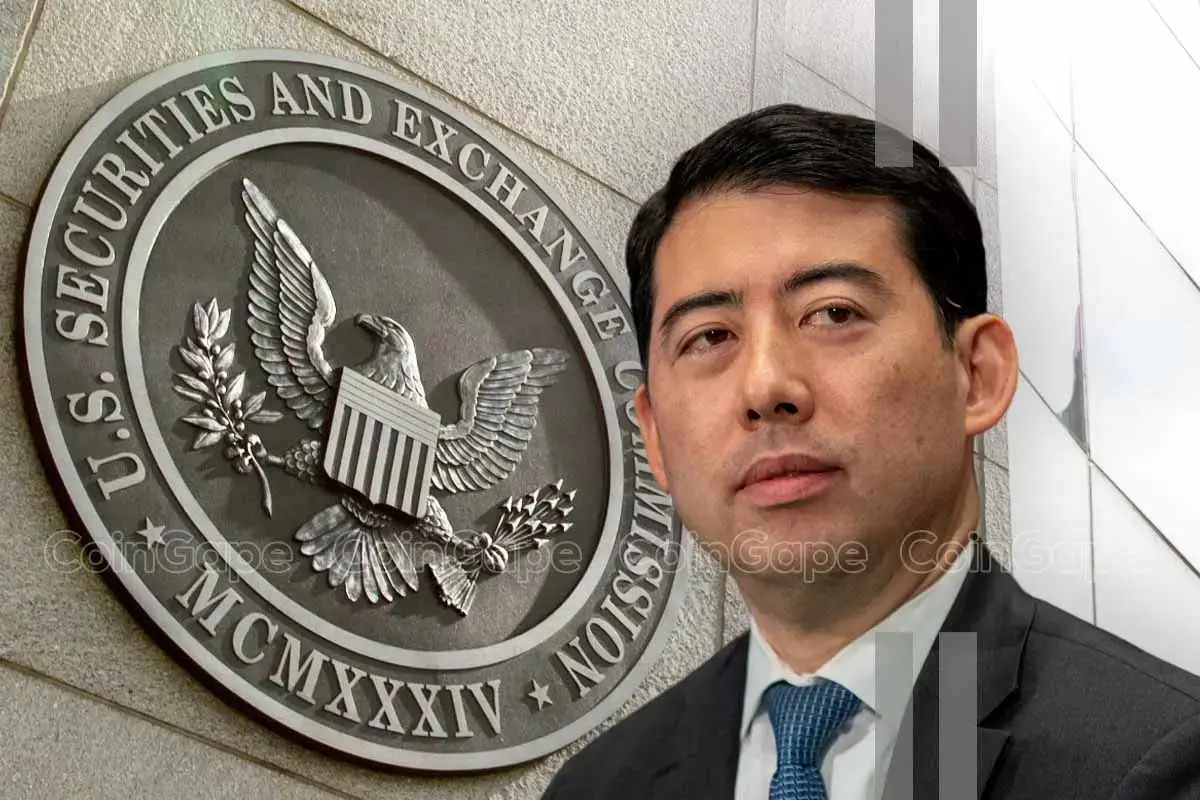Regulation
US SEC Case Against Binance Paused as Crypto Task Force Reviews Rules

A U.S. federal judge has paused the Securities and Exchange Commission’s (SEC) lawsuit against Binance for 60 days. The decision follows a joint request from both the SEC and Binance, citing the establishment of a new task force to review cryptocurrency regulations.
Judge Grants 60-Day Pause in Binance Case
U.S. District Judge Amy Berman Jackson approved the request to put the case on hold. The order was issued after both parties stated that the new SEC task force may influence the resolution of the lawsuit.
The SEC sued Binance and its founder, Changpeng Zhao, in June 2023. The regulator alleged that Binance inflated trading volumes, diverted customer funds, and misled investors about its compliance measures. Zhao later pleaded guilty to separate criminal charges and stepped down as CEO.
The judge also ordered the SEC and Binance to submit a joint status report by April 14. The report will help determine whether the pause should continue or if legal proceedings should resume.
This Is A Developing News, Please Check Back For More
Disclaimer: The presented content may include the personal opinion of the author and is subject to market condition. Do your market research before investing in cryptocurrencies. The author or the publication does not hold any responsibility for your personal financial loss.
Regulation
SEC launches new unit to combat crypto fraud and cybercrime


- The SEC has renamed its Division of Enforcement’s Crypto Assets and Cyber Unit (CACU) to the Cyber and Emerging Technologies Unit (CETU).
- CETU’s focus will be, among other things, to combat crypto fraud and cybercrime.
The US Securities and Exchange Commission has unveiled a new Division of Enforcement unit that will focus on combating crypto-related fraud and cybercrime.
SEC announced the new unit’s formation on Feb. 20.
In a press release, the SEC said it had created the Cyber and Emerging Technologies Unit (CETU). Its task will be to fight cyber-related crimes within the burgeoning emerging technologies space.
SEC’s new unit to complement crypto task force
CETU replaces the SEC’s Crypto Assets and Cyber Unit (CACU). Its core work will be to handle compliance with a view to protecting retail investors.
Laura D’Allaird will lead the CETU team of about 30 fraud specialists and attorneys, the regulator announced. The press release also noted these specialists and attorneys will come from across several SEC offices.
SEC’s acting chair Mark T. Uyeda said the unit is set to complement the effort of the agency’s recently launched Crypto Task Force. Announced in January 2015, the task force is led by Commissioner Hester Peirce.
Uyeda noted that CETU’s work will “allow the SEC to deploy enforcement resources judiciously.”
He added:
“The unit will not only protect investors but will also facilitate capital formation and market efficiency by clearing the way for innovation to grow. It will root out those seeking to misuse innovation to harm investors and diminish confidence in new technologies.”
Priority areas for the new unit will include fraud committed via crypto, blockchain, AI and Machine Learning, social media, the dark web, or fake websites. Hackers will also be on the radar of the new unit, as will be incidents involving takeover of retail brokerage accounts.
The SEC is also empowering the enforcement unit to look into non-compliance with cybersecurity regulations.
Regulation
US SEC Launches New Unit to Tackle Cyber and Crypto-Related Misconduct

The U.S. Securities and Exchange Commission (SEC) has announced the formation of the Cyber and Emerging Technologies Unit (CETU) to address cyber-related fraud and protect retail investors. The new unit will focus on misconduct involving digital assets, artificial intelligence, and other emerging technologies.
Laura D’Allaird has been appointed as the chief of CETU, which replaces the Crypto Assets and Cyber Unit. The new unit consists of 30 fraud specialists and attorneys from various SEC offices.
US SEC New Unit to Tackle Cyber and Crypto-Related Misconduct
The SEC stated that CETU will play a key role in tackling fraud linked to blockchain technology, crypto assets, and online scams. The unit will also focus on cybersecurity compliance for regulated entities and public issuers.
According to SEC Acting Chairman Mark T. Uyeda, CETU will work alongside the Crypto Task Force led by Commissioner Hester Peirce. “The unit will not only protect investors but will also facilitate capital formation and market efficiency by clearing the way for innovation to grow,” Uyeda said.
The SEC has maintained an active stance in overseeing digital markets. With the rise of artificial intelligence and machine learning, CETU will ensure these technologies are not misused to deceive investors.
This Is A Developing News, Please Check Back For More
Disclaimer: The presented content may include the personal opinion of the author and is subject to market condition. Do your market research before investing in cryptocurrencies. The author or the publication does not hold any responsibility for your personal financial loss.
Regulation
Tether Excluded as MiCA Clears 10 Stablecoin Issuers In Europe

The European Union (EU) has approved ten stablecoin issuers under the Markets in Crypto-Assets (MiCA) regulations. This marks a key step in the bloc’s approach to cryptocurrency regulation. However, the absence of Tether (USDT), the largest stablecoin by market capitalization, has raised concerns about regulatory priorities and the potential consequences for the digital asset market.
Tether Misses Out as EU Grants MiCA Approval to 10 Stablecoin Providers
The largest stablecoin issuer, Tether, was noticeably absent from the list of ten firms authorized under MiCA regulations to issue stablecoins in the EU. The approved entities include Banking Circle, Circle, Crypto.Com, Fiat Republic, Membrane Finance, Quantoz Payments, Schuman Financial, Societe Generale, StabIR, and Stable Mint. These firms have issued ten euro-pegged stablecoins and five US dollar-pegged stablecoins.
Despite Tether’s $141 billion market capitalization, the company did not receive approval, which means crypto platforms have begun delisting USDT for EU-based users.
Alongside stablecoin issuers, 11 MiCA-authorized Crypto-Asset Service Providers (CASPs) were approved across Germany, the Netherlands, and Malta. These providers offer services in trading, exchange, execution, custody, and transfers within the EU regulatory framework.
Expanding Operations Beyond the EU
With growing regulatory restrictions in the EU, Tether has continued to expand its operations in other regions. The stablecoin issuer recently proposed to acquire a 51% stake in a South African energy company, signaling a shift in focus toward investments outside of digital assets.
Tether’s exclusion from MiCA-approved stablecoin issuers raises questions about the EU’s regulatory approach. The company expressed disappointment over the decision, stating that the delistings were “hasty and unwarranted.” However, MiCA’s rules require stablecoin issuers to meet specific compliance standards.
Similarly, Tether has expanded into the sports industry, recently investing in Juventus to strengthen its presence in mainstream sectors. This move aligns with its broader strategy of integrating digital assets, AI, and biotech into traditional industries.
MiCA Rules To Isolate the EU Crypto?
Industry experts caution that the strict regulations under MiCA could isolate the EU’s digital asset market. Natalia Łątka, Director of Public Policy and Regulatory Affairs at Merkle Science, suggested that the EU’s regulatory stance may discourage foreign firms from operating in the region. She also noted that local crypto companies could consider relocating outside the EU to avoid restrictions associated with MiCA compliance.
Additionally, some analysts argue that the EU’s regulatory focus on compliance over innovation could reduce market competitiveness. While MiCA aims to provide clarity and stability, critics believe it may lead to fewer options for European crypto users. This pushes firms toward jurisdictions with more flexible regulations.
Disclaimer: The presented content may include the personal opinion of the author and is subject to market condition. Do your market research before investing in cryptocurrencies. The author or the publication does not hold any responsibility for your personal financial loss.
-

 Market22 hours ago
Market22 hours agoCoinbase Listing Drives Bittensor (TAO) 17% On the Day
-

 Regulation22 hours ago
Regulation22 hours agoUS SEC Withdraws Dealer Rule Appeal After Court Rejects Overreach
-

 Market21 hours ago
Market21 hours agoCardano Traders on Edge as Technical Signals Clash
-

 Market20 hours ago
Market20 hours agoCrypto Exchanges Launch Pi Network Airdrop
-

 Market15 hours ago
Market15 hours agoSolana’s Price Recovery From $170 Faces Investors’ Defiance
-

 Market19 hours ago
Market19 hours agoEthereum Struggles Below $3,000 Amid Weak Buying Pressure
-

 Market18 hours ago
Market18 hours agoHedera Slumps After 40% Drop – Can HBAR Recover?
-

 Regulation18 hours ago
Regulation18 hours agoTether Excluded as MiCA Clears 10 Stablecoin Issuers In Europe


















✓ Share: